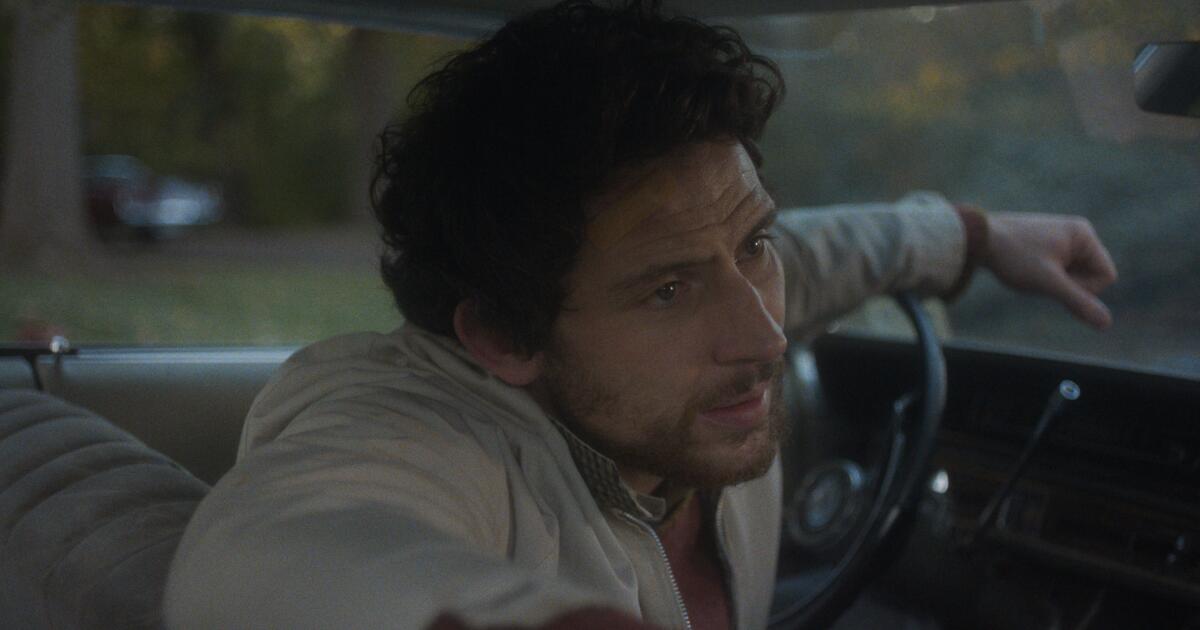‘The Mastermind’ review: Josh O’Connor isn’t the sharpest art thief
Kelly Reichardt’s watchful cinema is one of the indie world’s most exquisite bounties, a space for pioneers (“Meek’s Cutoff,” “First Cow”), artists (“Showing Up”) and wanderers (“Old Joy,” “Wendy and Lucy”) who command your attention the way an ER waiting room does, lingering tensely.
One might not consider a heist film in such anthropological terms. And yet “The Mastermind,” Reichardt’s latest and one of her best, while set in motion by a daylight art grab orchestrated by Josh O’Connor’s middle-class Massachusetts suburbanite, is another precisely turned Reichardt movie: honest, sad, funny and inherently philosophical about our engagement with the world. As you might expect, it’s really about the crime’s aftermath, our cut from this robbery being a deft, fascinating character study rooted in an apathy that’s starkly juxtaposed with the restive year it’s set in: 1970.
By the look of things, preppy, soft-spoken James Mooney (O’Connor), an unemployed carpenter, isn’t obvious criminal material, no matter what composer Ray Mazurek’s propulsive, horn-forward jazz score might imply. James cases his local art museum, often with his unwitting wife, Teri (Alana Haim), and two young boys in tow. Otherwise, James is just a distracted dad, checked-out husband and disappointing son living off the status and largesse of his parents, an esteemed judge (Bill Camp) and a society mother (Hope Davis).
Still, based solely on the error-prone heist — it’s been ages since pantyhose masks seemed so ridiculous — thievery isn’t this spoiled man’s strong suit either. (You didn’t think that title was respectful, did you?) When he’s stashing the stolen paintings later in a farmhouse’s hayloft and accidentally knocks the ladder out from under him, the moment is amusing and appropriately metaphorical.
Reichardt is laying bare a privileged man’s half-assed delinquency, especially with O’Connor so hypnotic at conveying self-absorbed cluelessness with his woeful eyes, posture and movement. As the movie then hits the road for his escape, the early fall colors of Christopher Blauvelt’s cinematography shift to gray tones and darker interiors, and James’ vibe is less rebel eluding capture — even if a pal he visits (John Magaro) expresses admiration — than alienated loser leaving behind a mess, an assessment radiating from Gaby Hoffmann as Magaro’s wife. The bebop groove abandons James, too, slowing into jagged drum solos.
The last contextual indignity are the details of the period itself: Nixon posters, anti-war signs, Vietnam footage on televisions, a protest march. Unforced but ever-present in Reichardt’s mise-en-scène, they remind us that this bored aesthete’s misadventure is an especially empty way to buck conformity. When good trouble beckons, why pick the bad kind?
One can even detect, in this brilliant, captivating Reichardt gem about fortune and fate, a what-if attached to her disaffected male protagonist: Would today’s version of James, just as adrift and arrogant, steal art to assuage his emptiness? Or, thanks to the internet, succeed at something much worse? “The Mastermind” may be an ironic title as heists go. But it also hints at the male-pattern badness still to come.
‘The Mastermind’
Rated: R, for some language
Running time: 1 hour, 50 minutes
Playing: In limited release Friday, Oct. 17
